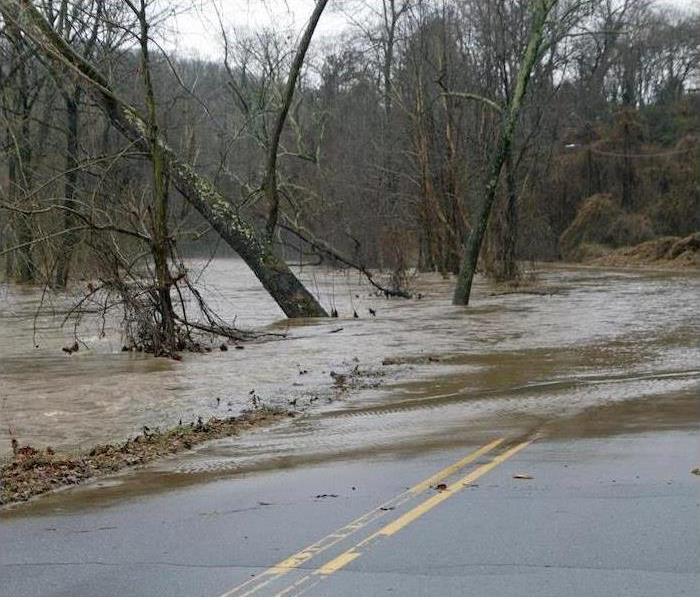The Reason Why Flash Floods Are Hazardous | SERVPRO® of North Lilburn
4/12/2021 (Permalink)
 SERVPRO® of North Lilburn is your local water & flood restoration expert. We will get the job done right, contact us today.
SERVPRO® of North Lilburn is your local water & flood restoration expert. We will get the job done right, contact us today.
If it is a possibility that any type of severe weather will occur, staying safe is the top priority for everyone in its path. If that severe weather event happens to be a flash flood, staying safe becomes even more vital—and more difficult. Flooding is responsible for many deaths across the country each year, second only to heat in the weather-related fatality category. While any flood is dangerous, flash floods are especially concerning.
The sudden onset and little notice for flash floods makes them extremely hazardous, and they often impact urban areas and other parts of towns that are not used to flooding conditions. However, by knowing the facts, you can be safer in case you are ever faced with flash flooding conditions.
What Are the Risks of Flash Floods?
There is a level of risk associated with any type of flood, but due to the rapid onset of flash flooding, they present more risks than other types. Flash floods typically happen within three hours of heavy rainfall, often happening even sooner than that. With little notice, many people are caught by surprise by flash floods and do not know how to react.
What Is Important to Note About the Flash Flood Warning System?
Staying aware of local weather notices is key if a flash flood is a possibility, as this will provide you with the most accurate overview of rapidly changing conditions. If there is a flash flood watch issued, that means to stay alert, as conditions are ripe for a flash flood to occur.
If that is escalated to a warning, it is important to begin to execute your evacuation or safety plan. If there is a flash flood emergency declared, move as quickly as possible to higher ground.
What Should I Remember About Flash Flood Safety?
If there is a flash flood warning, safety is key—as is being able to think quickly to keep yourself and your family safe. Memorizing these tips can help you plan and execute your evacuation plan safely, even with little notice.
- Tune into local weather alerts so you can stay up-to-date on conditions.
- Plan out your evacuation and review the plan with every member of your household.
- Do not try to cross floodwaters, either on foot or in the car.
- Do not come into contact with floodwater if possible.
- Have multiple evacuation routes in mind in case water blocks your path.
If your home or business has been damaged due to a flood or other severe weather, you can depend on us. Contact us at any hour to learn more about our services or to report damage to your property.




 24/7 Emergency Service
24/7 Emergency Service